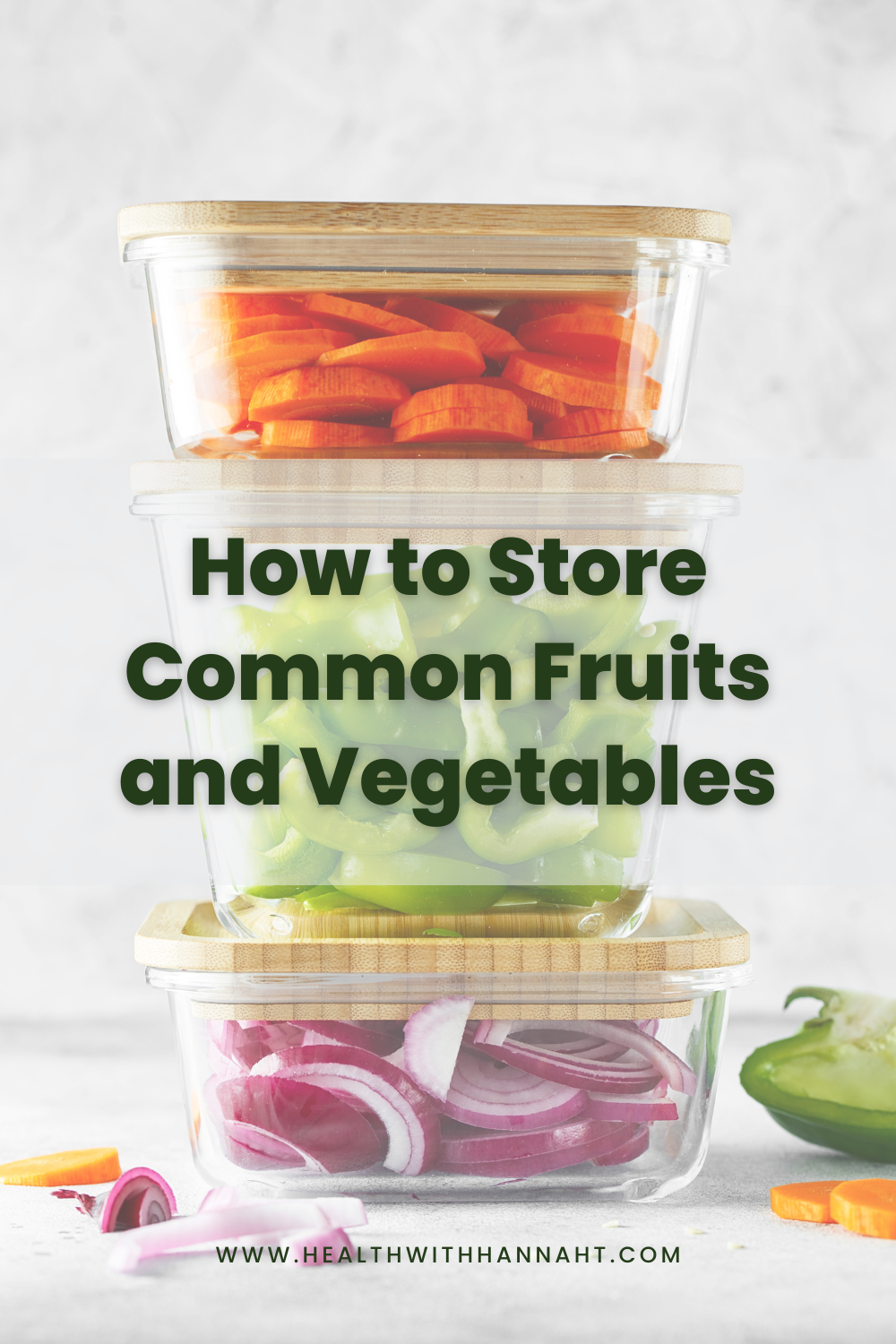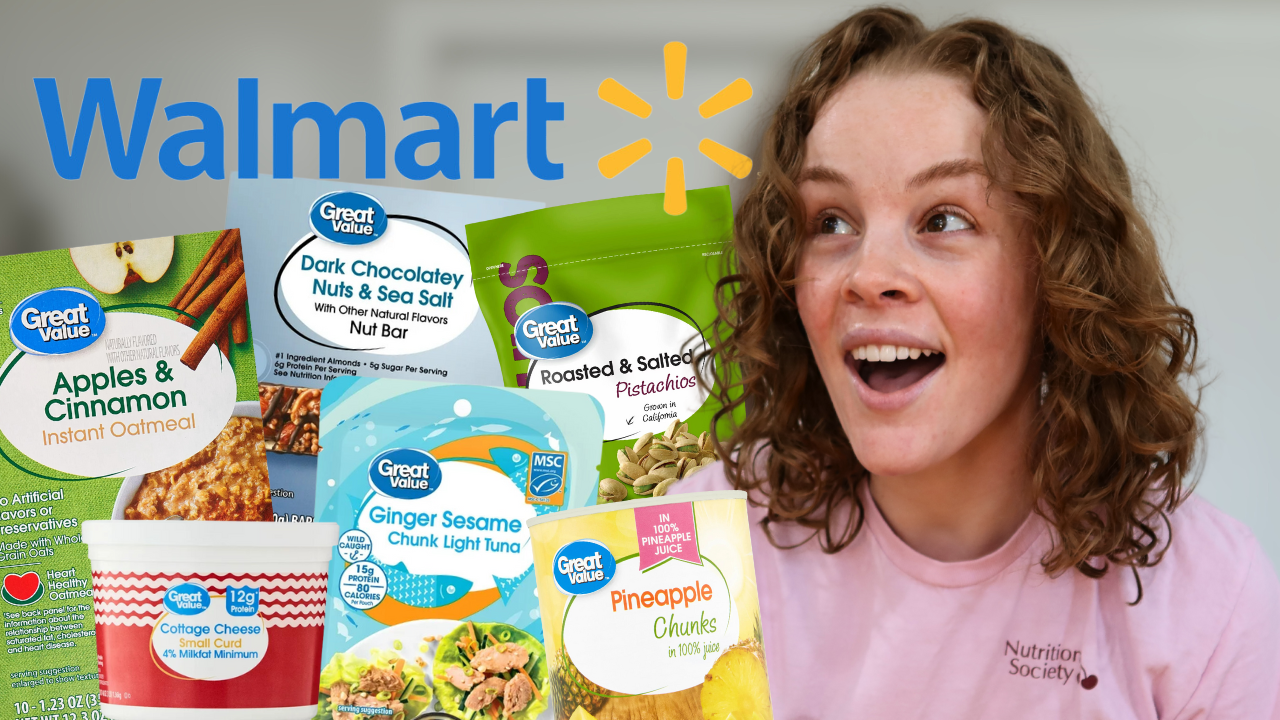How to Store Common Fruits and Vegetables
This post was written by Maria Beyer, a Nutrition & Dietetics undergraduate student at the University of Delaware. You can find her on Instagram @bitestolife. Content reviewed by Hannah Thompson, RDN, LD, CPT.
There’s something about a kitchen full of fresh produce that leaves such a rewarding and rejuvenated feeling. Whether you only grocery shop on occasion, buy in bulk, or visit your local farmers market, there are great ways to keep all produce as fresh as possible! Being more cautious about keeping fruits and vegetables fresh will save tons of money, and there may be some storage do’s and don'ts that will shock you!

Produce to store at room temperature in a dry, dark place
Onions and garlic
Store in a mesh or paper bag.
Potatoes, tomatoes, eggplant, squash, beets, cucumber, melon
Do not store in a bag. Provide plenty of air circulation.
When cut, store in the fridge.
Avocados, bananas, mangoes
Do not store in a bag.
Keep on the counter until they are at prime ripeness, then transfer to the fridge.
Produce to store in the fridge
Carrots, celery, peppers, mushrooms, apples, pears, citrus fruits
Store in a mesh, paper, or plastic bag or a sealed container.
carrots and celery can be submerged in water to further the shelf life.
Greens
Store unwashed with a paper towel on top in an airtight container.
Greens can also be stored in a salad spinner.
Berries
Store unwashed in a ventilated container. Line with a paper towel to further the shelf life.

Can you store produce in the freezer?
The only fruits and vegetables that are not recommended to be stored in the freezer are those with a high water content. This includes cucumbers, celery, lettuce, and watermelon.
Buying vegetables to keep in the freezer is budget-friendly and keeps them fresher longer! It is also popular to use frozen fruit such as bananas or mixed berries for smoothies, adding to the smoothie’s texture.
If properly stored, vegetables can last up to a year in the freezer and fruit can last up to 8 months.
Learn more
Featured podcast episode
Check out these grocery haul videos

Want more help on your intuitive eating journey?
Join my membership to become part of a community of ex-dieters working towards food freedom and making peace with food so they no longer need to cut out their favorite foods.














































